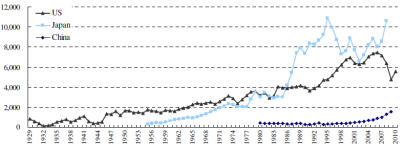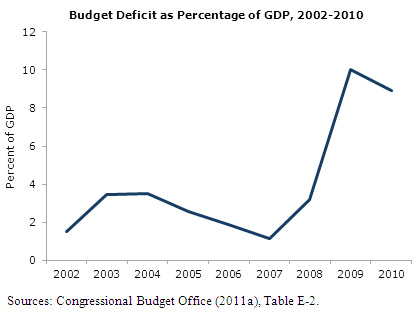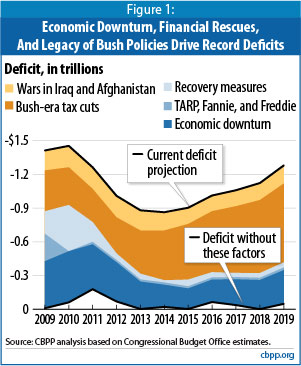here our boy wonder has wrestled with the latest stiglitz out piece
"....it goes like this:
" Rapid technological progress in a very large economic sector (agriculture then, manufacturing now) leads to oversupply and steep declines in the sector's prices"
very large or composite
wouldn't any large sector show these dynamics as productivity outraces demand ?
is there really easily demarcated intervals of fast and slow job kill thru innovations in technique
at such an aggregate level
" Poorer producers have less income. They come under pressure to cut back their spending."
automation hardly lowers wages all by themselves even as they thin out job forces or in the case of family farms ..family farms
" Others--consumers--are now richer because they are paying less for their food (or their manufactures), but their propensity to spend is lower than that of the stressed farmers or ex-manufacturing workers."
this is injected pablum where is the "reason for this " why are the new jobs not of equal va per hour ??
"Moreover, the oversupply of agricultural commodities (or manufactured goods) means that only an idiot would invest at their normal pace in those sectors. To the shortfall in consumption spending is added a shortfall in investment spending as well."
what ?? if each production unit is now more heavily mechanized why assume dloining investment unless demand elastcity is low
is that the case for all manufactures or does the analogy with crop farming break down here ??
"Thus we have systematic pressures pushing spending down below economy-wide income. These aren't going to go away until the declining sector (agriculture then, manufacturing now) is no longer large enough to be macroeconomically significant."
again a story that requires certain hidden assumptions that need excavation
"Macroeconomic balance requires that the economy generate offsetting pressures pushing spending up."
indeed
"For a while, those receiving the income that farmers (or ex-manufacturing workers) have lost and those who use to invest in the declining sectors can lend it to the farmers (or ex-manufacturing workers) so that they can keep up with the Joneses. But lending more and more to poorer and poorer debtors is, like lawn darts, only all fun-and-games until somebody loses an eye."
cute way of talking about the uses of household credit expansion even as the human capital value is stagnating for the bulk of the job force for ..well undisclsed reasons
some way or other service jobs must pay less then manufacturing jobs
hey paine we're just tryin' to give the folks a narrative here !!!!
"An alternative possibility is to switch investment away from the farm value-chain complex (or the manufacturing value-chain complex) to something else. But what? Nobody really knows. The future is uncertain."
that strikes me as a constant til proven otherwise
is this an age of acclerating uncertainty ???
" Other investments are clearly riskier then funneling money into the old channels of boosting the capital of the farm value-chain complex (or the manufacturing value-chain complex) had been. "
really ??? or is this once again the cry of risk taker to cover the profit takers reach for the max
risk taker job maker ,...nice names for asocial profiteer
"Given the extra risks, this pressure can only manifest itself if the cost of capital falls"
and wages as swell one must suppose
both petty rentierrs and other savers plus the job force must sacrfice for the risk takers
to get em to take the risks
". But here we hit the zero lower bound on interest rates. And we are off to the secular liquidity-trap races. This won't work either."
fair enough if fashion friendly these days
"Now at this point I disagree with ...Stiglitz. I see three plausible ways to fix the unemployment-generating aggregate demand shortfall"
here comes the voodoo the levitation the magic tricks
"(a) This could be fixed by expectations of inflation
that push your (risk takers) sustainable real cost of capital
down below zero far enough that savings no longer exceeds planned investment at full employment. "
yes the ben-krugman recipe for the nippon doldrums of the late 90's
"(b) This could be fixed by government loan- or bank-guarantee programs that transfer the risk of new and untried investments away from entrepreneurs and investors onto taxpayers, so that even without expected inflation planned investment at full employment no longer falls short of saving when the cost of capital is at the zero nominal lower bound. so that you don't need a cost of capital less then be expected rate of deflation. "
yikes socialize the risk brad ?? sure you want to advocate that
if the gub becomes in one stroke both risk taker and job maker
what for the hi fi sector privateer profiteers ??
this is effectively a bypass op
and that brings up the question why do we need the hi fiers in the first place then ??
"c) This could be fixed by having the government borrow and spend on a large scale."
ie keynesian shlock
and Stiglitz onlly likes letter c his conclusions:
"Two conclusions…. The first is that the economy will not bounce back on its own, at least not in a time frame that matters to ordinary people."
the economy here is on its own if we leave the recovery to the corporate privateers
" Yes, all those foreclosed homes will eventually find someone to live in them, or be torn down. Prices will at some point stabilize and even start to rise. Americans will also adjust to a lower standard of living—not just living within their means but living beneath their means as they struggle to pay off a mountain of debt. But the damage will be enormous."
booo hooo
more stig
" America’s conception of itself as a land of opportunity is already badly eroded. Unemployed young people are alienated. It will be harder and harder to get some large proportion of them onto a productive track. They will be scarred for life by what is happening today. Drive through the industrial river valleys of the Midwest or the small towns of the Plains or the factory hubs of the South, and you will see a picture of irreversible decay."
what about A and B stig ??
on A ??
"Monetary policy is not going to help us out of this mess…. [A]nyone who believes that monetary policy is going to resuscitate the economy will be sorely disappointed. That idea is a distraction, and a dangerous one."
but brad wants a why here and doesn't get one from stig
why won't voodood expexterations work
why can't the fed put a future risin inflation zoots into the rivate risk undertakers minds??
and B ?? why stig never even suggests brad's great risk rush avenue only
"What we need to do instead is embark on a massive investment program—as we did, virtually by accident, 80 years ago—that will increase our productivity for years to come, and will also increase employment now. This public investment, and the resultant restoration in G.D.P., increases the returns to private investment. Public investments could be directed at improving the quality of life and real productivity—unlike the private-sector investments in financial innovations, which turned out to be more akin to financial weapons of mass destruction."
yup a five year plan
not even a harrod -kalecki style transfer system based super injector
so brad mind reads :
"I think that if I asked him Stiglitz would say that (a)--zero interest rates and expected inflation--would help if you could get there, but that you cannot get there through monetary policy. Only if people expect full employment will there be enough inflation to sustain a full employment equilibrium. And since they don't expect full employment there isn't enough expected inflation no matter how easy monetary policy is."
and he's wrong brad ??
only if agents see effective demand rising before their eyes
rising beyond the old peaks will they invest in new capacity
and then ..of course ...why here ??? why not off shore ???
" I think he would say that (b) might work in the sense of restoring full employment in the short run, but it would be an unfair upward redistribution of wealth from taxpayers to financiers "
what ???
"and would not help resolve the underlying structural problems that created the shortfall between savings and planned investment at full employment in the first place."
ya but isn't that always the case with pure effective demand increases
the point is return to full E now
b4 we build the new national production platform out of the fully running old platform
or are we simply keeping zombies here by making bad loans ???
Stiglitz does say that (c) is best:
The private sector by itself won’t, and can’t, undertake structural transformation of the magnitude needed—even if the Fed were to keep interest rates at zero for years to come. The only way it will happen is through a government stimulus designed not to preserve the old economy but to focus instead on creating a new one… out of manufacturing and into services that people want—into productive activities that increase living standards, not those that increase risk and inequality…. Education…. [B]asic research. Government investment in earlier decades—for instance, to develop the Internet and biotechnology—helped fuel economic growth…. Meanwhile, the states could certainly use federal help in closing budget shortfalls…. [C]leaner and more efficient energy production…. [O]ur decaying infrastructure, from roads and railroads to levees and power plants, is a prime target for profitable investment.
And once we have both restored full employment and accelerated the structural transformation needed then we can return to normality. But in order to get there:
we must fix the financial system. As noted, the implosion of the financial sector may not have been the underlying cause of our current crisis—but it has made it worse, and it’s an obstacle to long-term recovery…. What’s needed is to get banks out of the dangerous business of speculating and back into the boring business of lending. But we have not fixed the financial system. Rather, we have poured money into the banks…. We have, in a phrase, confused ends with means. A banking system is supposed to serve society, not the other way around…
I'm not sure that I buy Stiglitz's argument that massive government borrow-and-spend is the only, or even the best, way out of our current mess. And I agree that Stiglitz's piece could have used a couple more paragraphs about life at the zero nominal interest rate lower bound explaining why Stiglitz thinks the belief "that monetary policy is going to resuscitate the economy will be sorely disappointed. That idea is a distraction, and a dangerous one".
Perhaps I have seen so much really bad macroeconomics over the past four years that I now suffer from the soft bigotry of low expectations. But this does not seem to me to be,
as Nick Rowe calls it:
really bad macroeconomics. God it's depressing. If you want to talk about a deficiency of aggregate demand, and why Say's Law sometimes fails, you really do need to talk about monetary exchange economies and an excess demand for money at the aggregate level. You can't just do partial equilibrium analysis and cobble it all together.
So then why does Nick have such an adverse reaction to Stiglitz?
I think it is because Stiglitz is at bottom a Wicksellian and Rowe is a Fisherian. A Wicksellian is a believer that the key equation in macro is the flow-of-funds equation S = I + (G-T), savings S equals planned investment I plus government borrowing (G-T), and that the money market exists to feed the flow-of-funds an interest rate that has a (limited) influence on planned investment I. A Fisherian is a believer that the key equation in macro is the money market's quantity theory equation PY = MV(i), and that the flow-of-funds exists to feed the quantity theory an interest rate that has a (limited) influence on velocity V.
Thus they have a hard time communicating. From the Fisherian viewpoint, the Wicksellians are talking nonsense because they spend their time on things that have a minor impact on velocity while ignoring the obvious shortage of money. From the Wicksellian viewpoint, the Fisherians are talking nonsense by ignoring the obvious fact that movements in money induce offsetting effects in velocity unless they somehow alter the savings-investment balance.
And it is we Hicksians, of course, synthesize both positions into a single unified and coherent whole…"
i'm too bored right now to tackle this minder grinder
i'll preview though
first stig has to show an acceleration in job kill here
i can't a priori see why the internal shifts of employment
required to meet industrial innovation kill jobs more slowly then the reshifting of job shares between manufacturing and services
ie with services absorbing the freed up "labor power "
or to get to stigs parallel
the shift from ag to industry
----------------------
next
the shrinking size of the ag sector workforce is one thing the shrinking
of the share of domestically produced ag products another
our present industrial shrink is jobs and...AND product share
stig skips the impact of accelerated off shoring of manufacturing these past 50 years
how much would we employ in manufacturing if that sector was in trade balance
seems the proper base line
if we have a structural problem i'd say this should be its resolving target
balanced trade in manufactures looked at in isolation
as we look at ag and energy and extractive ie other basic natrual resource based
commodity trade balances
food feed fiber and fuel versus steel cloth plastics chemicals etc
blah blah blah ....
lesson
don't let their fuckin muddle escape with only a blast of contempt
we need to run the film backwards on any mish mash
---like this stig mish mash --
with a pro MNC result
we need to show where the MNC off shoring arbitrage poison
has been dupe -ishly "mixed"
into the various inevitabilities of social production's glorious and faustian
march to full automation







































